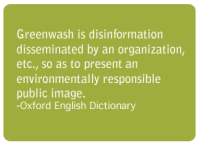 This week we have a look at a habitat in danger.
This week we have a look at a habitat in danger.
Good old England, Kent, in fact.
Row over £1bn development plan on nightingale habitat site in Kent
Conservationists in clash with the government over Lodge Hill, once used by MoD to train soldiers, now home to nightingales

The nightingale has flown into a cabinet-level row over a proposed £1bn housing development which threatens the bird’s most important UK site. Photograph: Alamy
The nightingale, praised in Keats’s famous ode as “pouring forth thy soul abroad / In such an ecstasy”, has flown into a cabinet-level row over a proposed £1bn housing development which threatens the bird’s most important UK site.
The nightingale’s song has been feted, but its numbers in the UK have crashed by 90% in the past 40 years. However, it has established a stronghold on a former Ministry of Defence site, Lodge Hill in Kent, once used to prepare soldiers for service in Northern Ireland and for bomb disposal training.
But the 85 male birds that stake out their territory in the ancient woodland and scrub face the advance of property giant Land Securities, developing the site for the MoD, and Medway council, which says the 5,000 homes planned and the associated jobs are badly needed.
The clash of a major housing development, a central part of the government’s plan for economic revival, with a small flock of birds has ruffled feathers at the highest level, with prime minister David Cameron telling environment secretary Owen Paterson to fix the problem, the Guardian has learned. The intervention follows George Osborne’s reported complaints about other “feathered obstacles” to development.
The poet Sir Andrew Motion, president of the Campaign to Protect Rural England and a biographer of Keats, says the cultural importance of the nightingale’s “art” – its song – endures: “It is such a small, brown bird that only presents itself at night, it could hardly be more humble. But when it opens its beak this absolutely ravishing sounds comes out” which matches a British sense of what art should be. “We don’t approve of peacocks,” he added.
Motion said there were now many places where housing developments and wild places were in conflict and said using old urban and industrial sites, rather than those rich in wildlife, must always be the first priority: “When you concrete over green spaces, that is England gone.”
The row intensified this month when Natural England, the government’s statutory wildlife adviser, declared Lodge Hill’s nightingales and wild flowers to be a site of special scientific interest, raising the barrier to development even higher.
Tory-run Medway council condemned the decision as “astonishing”. A spokeswoman said: “We have the absurd situation of a government agency, Natural England, stopping a government department, the MoD, from proceeding with their plans to relinquish their former training grounds. We are deeply unhappy with this decision.” The council, which will appeal against the SSSI decision, said the site was “littered with munitions and, due to delays, has become overgrown”.
But Owen Sweeney, from the Medway Countryside Forum, said: “The place is a treasure, a real jewel. I have taken my grandchildren up there to hear their first nightingale and it is a joy to watch their faces enraptured by the song.”
He said the blackthorn and bramble scrub, as well as the coppiced ancient woodland, was a wonderful habitat for the extremely shy bird, which spends 12 weeks or so on the 815-acre site before wintering in west Africa. “These are the remaining green lungs amid the sprawling development around: Medway is full,” said Sweeney.
Anna Heslop, an RSPB casework officer, blamed the council for the impasse. “The problem is not the SSSI designation, or that nightingales are on the site, the problem is that Medway council are not going through the proper procedures to look at whether there is any alternative or whether this is the only place this housing can go.” She said the RSPB was not anti-housing and worked with builders to make developments as wildlife-friendly as possible where there was genuinely no alternative.
A spokeswoman for the Department for Environment, Food and Rural Affairs (Defra) said: “Growing the economy is the government’s top priority and we can do this at the same time as we improve the environment.” She suggested that “biodiversity offsetting” – where new habitat is created elsewhere to compensate for a habitat destroyed – could be a solution.: “Lodge Hill presents a strong opportunity to test this policy to allow development while ensuring wildlife and habitats thrive.”
But Chris Packham, naturalist and TV presenter, said: “The bird migrates all the way to Africa and then it comes back to exactly the same tree. The idea that we can make a new habitat 20 miles away and expect the birds to go there is nonsense.”
He added: “Sadly, the nightingale is a bird that more people know about than ever will hear, because of its catastrophic decline. Most of the sites I grew up with have fallen silent now.” Only 6,000 singing males remain in the UK.
I know this is a politically motivated ramble for which I make no apologies, but have a listen to the song.






















Posted by Alex Jones on March 31, 2013 at 11:05 am
Those are complex song codes the bird is singing. The advantage of MOD land is the wildlife is allowed to exist in relative peace to prosper on it.
LikeLike
Posted by argentumvulgaris on April 1, 2013 at 1:42 pm
>Alex, I had never heard a nightingale before and their song is complex and beautiful.
AV
LikeLike
Posted by smallftprints on April 1, 2013 at 12:17 pm
Only 6,000 singing males remain? How sad! Once again, human actions are at the expense of wildlife. It isn’t fair! Thank you for the song … this might be the only way we’ll ever hear these lovely birds again.
LikeLike
Posted by argentumvulgaris on April 1, 2013 at 1:43 pm
>Small, when you are talking birds, 6,000 is not a lot. When i read of their plight, I couldn’t help but post it and add the songs.
AV
LikeLike
Posted by smallftprints on April 1, 2013 at 2:14 pm
I totally agree … when I read 6,000 I was shocked that there are so few … and that their numbers have dropped so significantly. It’s tragic!
LikeLike